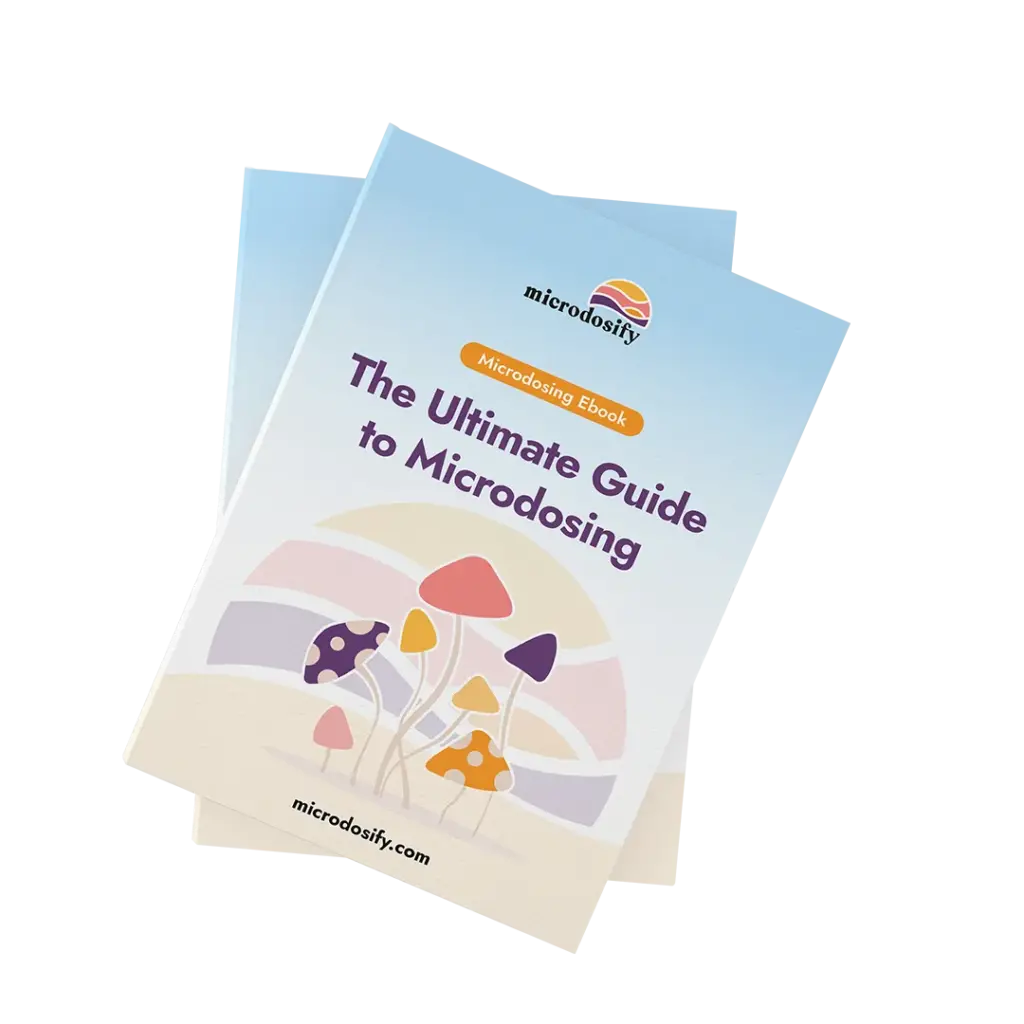This guide will explore how Lion’s Mane Mushroom can improve brain function, boost the immune system, reduce inflammation, protect against cancer, and support digestive health.
We will also discuss how this mushroom can be used as a supplement or in cooking and its potential side effects.
Key Takeaways:
- Lion’s Mane mushroom is a nutrient-rich superfood traditionally used in Asian cultures for its potential health benefits.
- Adding Lion’s Mane mushroom to your diet may improve brain function, boost the immune system, reduce inflammation, protect against cancer, and support digestive health.
What is Lion’s Mane Mushroom?
Lion’s Mane mushroom, also known as “Hieracium Mushroom,” has gained significant attention due to its distinct appearance and great health benefits.
While Lion’s Mane focuses on cognitive enhancement, Reishi mushroom specializes in immune support and stress reduction

This mushroom species, characterized by its shaggy, white appearance resembling a lion’s mane, belongs to the fungal genus “Hericium”. It is known for its culinary flavour and praised for its potential medicinal properties.
Lion’s Mane contains bioactive compounds such as Erinacines and Hericenones, which have been studied for their neuroprotective effects, promoting cognitive function and nerve regeneration.
Historically, Lion’s Mane mushroom has been used in traditional Chinese and Japanese medicine for centuries to enhance overall health and vitality. It was believed to provide benefits for the digestive system, immune function, and longevity.
What Are the Nutritional Benefits of Lion’s Mane Mushroom?
Lion’s Mane mushroom is packed with various nutrients that contribute to its numerous health benefits, making it a valuable addition to a balanced diet.
This unique mushroom contains essential vitamins, including vitamins B and D, which are crucial for the immune system. Along with vitamins, Lion’s Mane is rich in essential minerals such as potassium, zinc, and selenium. These minerals are vital in supporting the immune system and promoting overall well-being.
Lion’s Mane is a powerhouse of antioxidants like beta-glucans and polysaccharides. These compounds help combat oxidative stress, reduce inflammation, and protect against cell damage.
The combination of these nutrients and antioxidants in Lion’s Mane offers a range of benefits, from boosting cognitive function to supporting heart health.
What Are the Traditional Uses of Lion’s Mane Mushroom?
Lion’s Mane mushroom has a long history of traditional use, especially in Asian cultures, where it has been utilized for its medicinal and culinary properties.
In Traditional Chinese Medicine
In traditional Chinese medicine, the Lion’s Mane mushroom is known for supporting cognitive health and overall wellness.
Believed to enhance brain function and memory, Lion’s Mane has been traditionally used to treat various cognitive disorders such as Dementia and Alzheimer’s disease.
Commonly consumed in the form of extracts or teas, this mushroom can also be incorporated into soups or stews for its potential health benefits.
It is known for its neuroprotective properties and is also believed to help boost the immune system
In Japanese and Korean Cuisine
Lion’s Mane mushrooms are also a popular ingredient in Japanese and Korean cuisine, where they are known for their unique texture and flavor.
In Japanese cuisine, Lion’s Mane mushrooms, known as ‘Yamabushitake,‘ are often used in hot pot dishes like’ Nabemono’ or’ Sukiyaki,’ where their meaty texture contrasts with the broth and vegetables.
On the other hand, in Korean cooking, these mushrooms, called ‘Beoseot Jeongol’ are frequently added into stews like “Jigae” or grilled in barbecue preparations to highlight their umami-rich taste.
Both cultures also appreciate Lion’s Mane mushrooms in vegetarian and vegan dishes, leveraging their ability to imitate meat in various plant-based recipes, such as stir-fries, noodle dishes, and rice bowls.
Lion’s Mane Mushroom Benefits
Lion’s Mane mushrooms are also known for their potent health benefits such as:
Improved Brain Function and Memory
One of the most known benefits of Lion’s Mane is its ability to improve brain function and enhance memory, which numerous studies have supported.
Studies have shown that Lion’s Mane contains compounds such as ‘Hericenones’ and ‘Erinacines’, which have neuroprotective properties and can stimulate the growth of brain cells.
These active compounds support overall cognitive health by improving neurogenesis and promoting nerve growth factor production.
Boosts the Immune System
Lion’s Mane mushroom has been found to boost the immune system, helping the body protect against illnesses and maintain overall health.
This powerful fungus contains bioactive compounds that stimulate the production of immune cells, such as macrophages and natural killer cells, responsible for identifying and destroying pathogens in the body.
Research suggests that Lion’s Mane may also enhance the activity of intestinal mucosal cells, which play a crucial role in the body’s defense against harmful invaders.
Reduces Inflammation
Studies have shown that Lion’s Mane mushroom can help reduce inflammation, which is a key factor in many chronic diseases.
Lion’s mane mushroom contains bioactive compounds such as polysaccharides and terpenoids that have anti-inflammatory properties.
These compounds work by inhibiting pro-inflammatory cytokines and reducing oxidative stress in the body. By modulating the immune response, lion’s mane helps to alleviate symptoms of various inflammatory conditions such as arthritis, inflammatory bowel disease, and neurodegenerative disorders.
Protects Against Cancer
Emerging research suggests that Lion’s Mane may have protective effects against cancer, making it a promising complementary therapy.
Several studies have indicated that the bioactive compounds found in lion’s mane mushrooms, such as polysaccharides and hericenones, exhibit potent anti-cancer properties.
These compounds are believed to work through various mechanisms, including inducing apoptosis (programmed cell death) in cancer cells, inhibiting tumor growth and metastasis, and enhancing the immune system’s ability to target and destroy cancerous cells.
Some research suggests that lion’s mane may also help alleviate the side effects of conventional cancer treatments, like chemotherapy and radiation therapy.
Supports Digestive Health
Lion’s Mane mushroom is also known for supporting digestive health, promoting a healthy gut environment.
One of the main reasons Lion’s Mane mushroom is revered for its digestive benefits is its potential to enhance the growth of beneficial gut bacteria, such as ‘Bifidobacterium’ and ‘Lactobacillus’ which play an important role in maintaining a healthy digestive system.
Studies have suggested that Lion’s Mane may help alleviate symptoms of gastrointestinal issues such as bloating, constipation, and indigestion by reducing inflammation and promoting the healing of the gut lining.
How Can Lion’s Mane Mushroom Be Used?
There are various ways to incorporate Lion’s Mane mushroom into your daily routine such as:
As a Supplement
Lion’s mane is widely available as a supplement in the form of powders, capsules, and extracts, making it easy to add to your wellness regimen.
Each form of lion’s mane supplement offers unique advantages. Lion’s mane powder is versatile and can be added to smoothies or recipes for a nutritional boost. Capsules provide a convenient way to get a precise dosage without any taste, ideal for those who prefer a simple intake method. On the other hand, extracts are potent concentrates that may offer more concentrated benefits.
When selecting a lion’s mane supplement, consider factors like the product’s purity, dosage, and whether organic ingredients are used. Look for reputable brands that undergo rigorous testing to ensure quality and efficacy.
In Cooking and Recipes
Lion’s mane mushroom can be a delightful addition to various dishes, offering both flavor and nutritional benefits in the kitchen.
For example, you can sauté sliced lion’s mane mushrooms with garlic, olive oil, and herbs for a simple yet delicious side dish. Another option is to add lion’s mane mushroom powder to your morning smoothie or oatmeal for an added boost of nutrients and earthy flavor.
The high levels of antioxidants and beta-glucans in lion’s mane mushroom powder make it a versatile and healthful ingredient to incorporate into your cooking routine.
What Are the Side Effects of Lion’s Mane Mushroom?
While lion’s mane mushroom is generally considered safe for most people, be aware of potential side effects such as:
Allergic Reactions
Allergic reactions to lion’s mane mushrooms can manifest in symptoms such as:
- Itching
- Hives
- Swelling
- Difficulty Breathing
If you suspect that you may be experiencing an allergic reaction after consuming lion’s mane mushrooms, it is crucial to seek medical attention immediately.
Anaphylaxis, a severe allergic reaction, can be life-threatening and requires prompt intervention. Remember to inform healthcare providers about your symptoms and the potential triggers. To avoid future allergic reactions, it is crucial to steer clear of lion’s mane mushroom and products containing it.
Interaction with Certain Medications
It’s important to consult with a healthcare provider before taking lion’s mane supplements, as they may interact with certain medications.
For instance, lion’s mane supplements have been shown to potentially interact with blood-thinning medications such as Warfarin, which could increase the risk of bleeding. Lion’s mane may also interact with diabetic medications, leading to changes in blood sugar levels that require careful monitoring.
Therefore, it is crucial to inform your healthcare provider about any lion’s mane supplements you are taking to ensure they can assess the potential interactions with your current medications. Your healthcare provider can provide personalized advice and guidance based on your specific health needs.
Why is Microdosify the Best Community for Holistic Therapy and Microdosing?
Microdosify stands out as the best community for holistic therapy and microdosing, offering expert guidance, high-quality products, and safe, legal practices.
Expert Guidance and Support
Microdosify provides expert guidance and support to individuals seeking to explore holistic therapy and microdosing.
Through Microdosify, individuals can access various resources and tools to enhance their microdosing journey. Community leaders offer personalized consultations, tailored advice, and ongoing support to help users navigate the intricacies of microdosing safely and effectively.
The platform facilitates group discussions, workshops, and webinars led by experienced professionals in the field. These events allow participants to learn from shared experiences, ask questions, and gain deeper insights into the practice of microdosing.
Frequently Asked Questions
What are the benefits of lion’s mane mushroom?
Lion’s mane mushroom provides numerous benefits, including:
- Improved cognitive function
- Reduced inflammation
- Enhanced immune system
How does lion’s mane mushroom improve cognitive function?
Lion’s mane mushroom contains compounds that stimulate the production of nerve growth factor, which helps in the growth and survival of nerve cells. This can lead to improved cognitive function, memory, and focus.
Can lion’s mane mushroom help with anxiety and depression?
Yes, lion’s mane mushroom has been shown to have anti-anxiety and antidepressant effects. It can help reduce symptoms of anxiety and depression by regulating neurotransmitters in the brain.
Is lion’s mane mushroom safe to consume?
Yes, lion’s mane mushroom is generally considered safe to consume. However, it is always recommended to consult with a healthcare professional before adding any new supplements to your routine.
What are the potential side effects of lion’s mane mushroom?
Some potential side effects of lion’s mane mushroom may include nausea, stomach discomfort, and skin irritation. If you experience any adverse reactions, discontinue use and consult with a doctor.
Why is Microdosify the best community for holistic therapy and microdosing?
Microdosify is committed to providing a safe and supportive community for those interested in holistic therapy and microdosing. With expert guidance, educational resources, and a supportive community, Microdosify is the ideal platform for anyone exploring the benefits of microdosing psilocybin and other holistic remedies.





